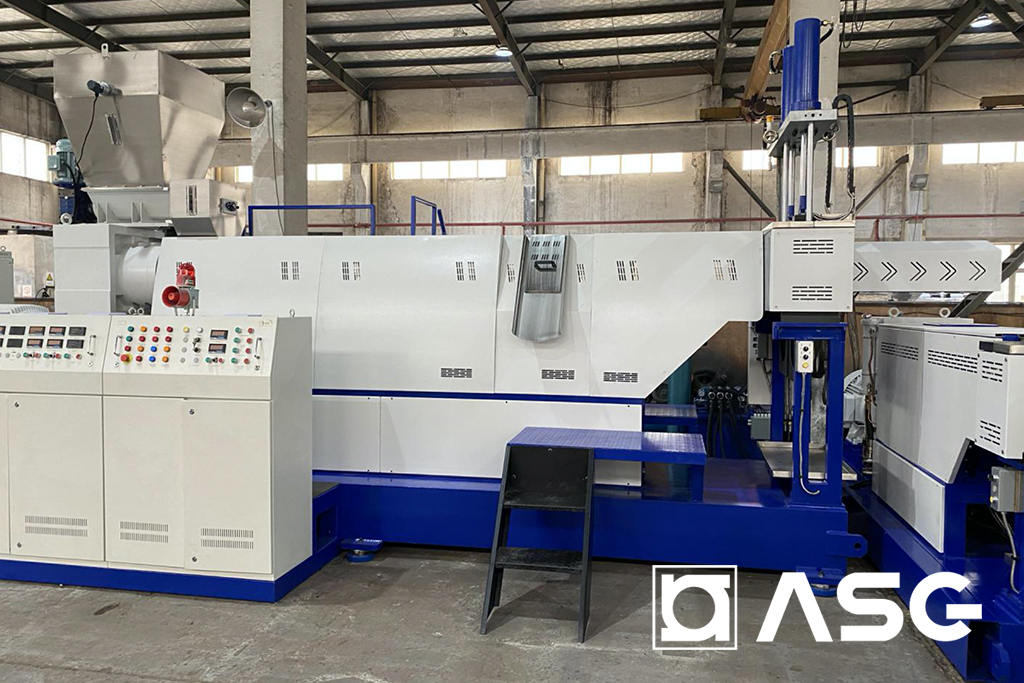Plastic is a versatile material that has become an indispensable part of modern life. It can be molded into different shapes and sizes, making it ideal for a wide range of applications, from packaging to industrial products. However, the excessive use of plastic has led to a global waste management crisis, with plastic waste littering our land, waterways, and oceans.

To address the issue of plastic waste, many countries have implemented recycling programs to reduce the amount of plastic waste that ends up in landfills or pollutes the environment. Recycling plastic not only helps to conserve natural resources but also reduces greenhouse gas emissions and saves energy.
One of the most effective ways of recycling plastic is through the use of plastic recycling machines. These machines are capable of converting plastic waste into useful products, such as plastic pellets or granules, which can be used to manufacture new plastic products. The process of plastic recycling involves several stages, including sorting, washing, shredding, and melting.
There are different types of plastic recycling machines available in the market, ranging from small-scale machines designed for home use to large-scale machines used in industrial settings. One of the leading manufacturers of plastic recycling machines is JWELL Machinery, established in 1997, which specializes in plastic extrusion manufacturing machines. The company has seven manufacturing plants in China mainland and one in Thailand.
One of the unique technologies developed by JWELL Machinery is the Plastic Recycling Plant. This recycling plant is designed to recycle various types of plastic waste, including PET, HDPE, LDPE, PP, and PVC. The plant utilizes state-of-the-art technology, including a plastic sorting system, a high-speed shredder, and an extrusion system. The end product of the recycling process is high-quality plastic pellets, which can be used to manufacture new plastic products.
The Plastic Recycling Plant has several advantages over traditional recycling methods. Firstly, it is a cost-effective solution for recycling plastic waste, as it reduces the cost of raw materials for plastic manufacturers. Secondly, it reduces the carbon footprint of plastic production, as it saves energy and reduces greenhouse gas emissions. Finally, it helps to conserve natural resources, as it reduces the need for virgin plastic materials.
The impact of plastic waste on the environment cannot be overstated. Plastic waste takes hundreds of years to decompose, and during this time, it not only pollutes the environment but also poses a threat to wildlife. Plastic waste can also leach harmful chemicals into the soil and water, which can affect human health.
Plastic recycling machines, such as the Plastic Recycling Plant developed by JWELL Machinery, have the potential to reduce the impact of plastic waste on the environment. By recycling plastic waste, we can conserve natural resources, reduce greenhouse gas emissions and save energy. The use of plastic recycling machines also promotes a circular economy, where waste is turned into a valuable resource, rather than being discarded.
In conclusion, the importance of plastic recycling machines cannot be underestimated in the context of sustainability. With the global waste management crisis worsening, the use of these machines is critical in reducing the amount of plastic waste that ends up in landfills or pollutes the environment. Manufacturers such as JWELL Machinery are leading the way in developing innovative plastic recycling solutions that have the potential to transform the way we use plastic.